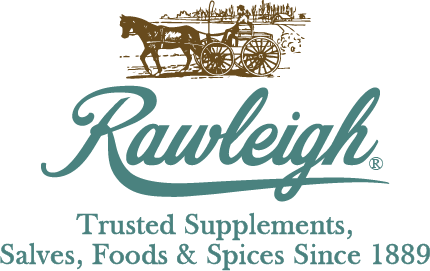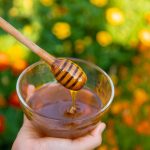The Glycemic Index of Honey
Honey and sugar are two of the most common sweeteners worldwide. People use one of the two for sweetness in foods. While both serve the same purpose, their chemical composition and glycemic index vary. Using honey instead of sugar for sweetening purposes may be a better idea. A cardiovascular supplement with honey can suit some patients more than sugar intake. If you wonder how this is possible, we have covered some interesting details about honey consumption below.
How Are Honey and Sugar Different?
There is a never-ending debate among honey and sugar lovers worldwide. While both carbohydrates come from glucose and fructose, their nutritional benefits and glycemic indexes vary. Many prefer honey over sugar due to its health benefits. There is no doubt that honey is better than sugar in terms of benefits and GI. However, you may not consider it an entirely healthy sweetener.
When we compare the two, honey weighs heavier regarding nutritional values than sugar. Firstly, honey has a higher fructose content than glucose. Since fructose is sweeter, you may use smaller amounts to achieve the desired sweetness in your foods. Moreover, honey contains additional nutrients, like enzymes, vitamin B, vitamin C, antioxidants, minerals, and amino acids.
Conversely, sugar is a calorie-dense sweetener with no additional nutrients. You may need more sugar granules to achieve the same sweetness as with smaller amounts of honey. The lack of nutritional compounds makes it less healthy than honey. Diabetic patients may completely avoid using sugar to maintain optimal blood sugar levels.
You may need to add a sweetener to suit your flavoring preferences when using vitamins for cardiovascular health. Honey might be a better option on your list due to lower GI.
The Glycemic Index (GI) of Sugar and Honey
Comparing the GI values of sugar and honey can help you choose the better option. Sugar has a Glycemic Index of 65 in most cases. While true, you may find it in various forms. The GI for each type may vary slightly from this value. Moreover, sweet products may show a varying GI value due to altered chemical composition.
If we review the GI value of honey, it turns out to be 58. The lower GI makes honey a better sweetener than sugar in terms of nutritional value. Here, you should remember that a lower GI value does not make honey a healthy food. Both honey and sugar can lead to blood sugar problems. Moreover, patients with type 2 diabetes may avoid both to ensure better health.
Graph link: https://clinicalnutritionespen.com/article/S2212-8263%2812%2900060-7/fulltext
Let us understand the average chemical composition of honey as compared to sugar. This read may sound scientifically technical but we assure you, we have tried to make this as easy to understand as adding honey supplements to your diet.
Should You Consume Honey Instead of Sugar?
Honey is a better option than sugar in terms of GI values. Sugar can raise your blood sugar levels quickly after consumption. However, honey does the same job slowly. When using supplements to raise HDL, you may use minor amounts of honey for sweetening. Some patients mistake honey for a healthier alternative to sugar and use it frequently.
Such practices can lead to increased sugar levels in most diabetic patients. When you choose a supplement, you may consult your doctor about optimal honey consumption for sweetening purposes. Any negligence in this regard can lead to disturbed cholesterol and blood sugar levels.
Blood Sugar Level Charts
If you wonder what the optimal blood sugar levels are for healthy people, patients with type 1 diabetes, and patients with type 2 diabetes, we have covered the details below. Whether using supplements to reduce bad cholesterol or relying on natural foods, you may keep the following blood sugar ranges in mind to avoid health complications.
Ranges for Type 1 Diabetes
The following table highlights the optimal ranges for type 1 diabetic patients under 18.
| Testing Time | Optimal Range |
| Fasting | 90-130 mg/dL |
| Overnight | 90-150 mg/dL |
Ranges for Type 2 Diabetes
The following figures highlight optimal ranges for adults with type 1 or 2 diabetes and children with type 2 diabetes.
| Testing Time | Optimal Range |
| Fasting | 80-130 mg/dL |
| Post Meals (1-2 Hours) | Below 180 mg/dL |
Ranges for Healthy People
Those with no diabetic history or complications may observe optimal blood sugar ranges.
| Testing Time | Optimal Range |
| Fasting | 99 mg/dL or lower |
| Post Meals (1-2 Hours) | 140 mg/dL or lower |
Pros and Cons of Honey
When comparing honey with sugar, you might want to know some of the pros and cons of each to determine your preferences. We will start with honey to help you decide.
Pros
- Smaller amounts of honey can compensate for larger sugar quantities
- Honey contains nutritional compounds (minerals and vitamins)
- Raw forms may defend your body against allergies
Cons
- Honey has relatively more calories per serving than table sugar
- Honey may not be suitable for infants
Some cholesterol supplements require sweeteners for flavoring when used. You may use minor amounts of honey to achieve desired sweetness and add nutritional content to your daily intake equation.
Pros and Cons of Sugar
Table sugar is a primary sweetener in most households. Whether having a cup of tea or making a dessert, you may need table sugar for sweetening. Let’s dive into the pros and cons of table sugar to compare them with those of honey and make an informed choice.
Pros
- Sugar occurs naturally
- Sugar has lower calories per serving than honey
- Sugar can survive for longer periods (shelf life)
Cons
- Sugar can lead to health complications
- Sugar can cause weight gain in most users
- Excessive sugar consumption may lead to an abrupt rise and fall in energy
If you want to avoid excessive sugar consumption, talking to your healthcare expert may help you decide on moderate per-day doses.
How to Maintain Optimal Blood Sugar Levels?
Maintaining your blood sugar levels in optimal ranges can be challenging. You may need a dietician’s assistance to develop a healthy diet routine. A dietary supplement is one of the best ways to achieve optimal levels. A quality supplement like Formula#1 can effectively meet your healthy diet needs. Such supplements contain moderate amounts of sugars, calories, and vitamins to maintain a nutritional balance in the body.
You may consult your doctor to review the benefits of dietary supplements and start using them for better health.
* These statements have not been evaluated by the Food and Drug Administration. This product is not intended to diagnose, treat, cure or prevent any disease. It is recommended that a physician be consulted before taking any supplements. Results are not typical and may vary.

